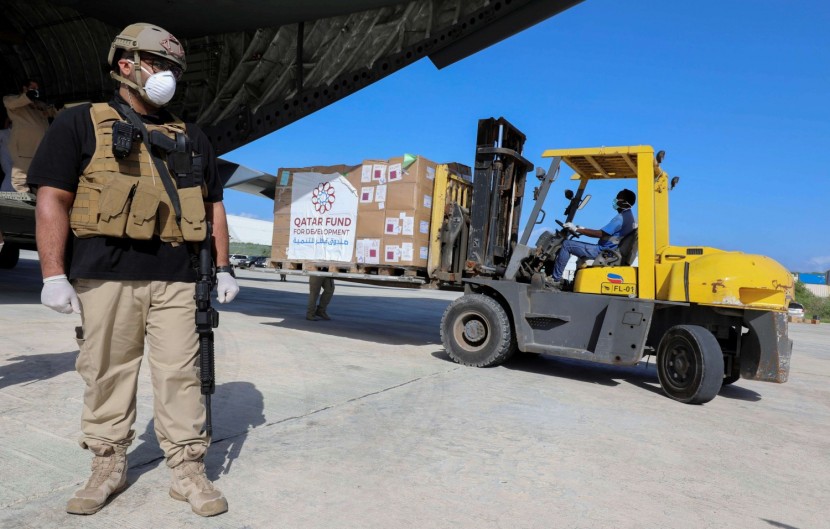
As it combats one of the highest coronavirus infection rates globally, Qatar began enforcing the world's most demanding penalties of up to three years' imprisonment for failure of wearing mask in public places.
With a population of 2.75 million, the tiny Gulf country currently reported more than 30,000 people who tested positive with coronavirus, but despite infections on 1.1 percent of its population, only 15 people died with the virus.
On the other hand, according to the European Centre for Disease Prevention and Control, only the small states such as San Marino and the Vatican had higher per-capita infection rates.
Meanwhile, violators of Qatar's coronavirus-related rules will face up to three years of imprisonment and fines of as much as $55,000.
While there is an exemption for drivers who are alone in their vehicles from the requirement, the police are still doing mandatory inspections at checkpoints and continue to remind them of the new rules before they came into force.
Most of Doha's Banks Street's customers on Sunday wore masks, but for those who were not able to wear only produce face covering when they were asked.
Wearing a black neoprene mask, a taxi driver waiting for passengers in the busy pedestrian area stressed that starting that day it is very strict.
While being imposed mandatory in almost 50 countries worldwide, scientists are still divided on the effectiveness of wearing a mask as a precautionary measure against COVID-19.
Moreover, 15-day imprisonment awaits violators as Chad authorities already imposed the mandatory use of masks in public places.
While in Morocco, the same rules apply but violators will be facing three months of jail time and pay a fine of as much as 1,300 dirhams or $130.
On top of this, Qatari authorities have warned against mass gatherings amidst the Muslim fasting month of Ramadan, saying that this may cause an increase in infections.
On Thursday, Abdullatif al-Kham, co-chair of the National Pandemic Preparedness Committee of Qatar, stated that there is a higher risk of infection while gatherings of families for Ramadan meals happen.
Also, neighboring Saudi Arabia will be enforcing a 24/7 countrywide curfew during the Eid al-Fitr holiday to combat COVID-19.
High Risk of infection among laborers
Closure of public places such as mosques, schools, restaurants, and malls is still imposed in Qatar to prevent the spread of the disease.
But as the preparation of the host country of 2022 World Cup still continues, construction sites in Qatar remained open with foremen and government inspectors watching over to ensure social distancing measures.
Despite the imposition of social distancing, government officials shared workers at three arenas have tested positive for COVID-19, since April 26, masks have been compulsory for construction workers.
Working under the sun on a road project in the blue-collar district of Doha, Msheireb district on Sunday, 12 masked laborers kept their distance while finishing their job.
On the other hand, Right groups cautioned that Qatar laborers' cramped living conditions, preparation areas, communal food, and shared bathrooms could wash away efforts in social distancing and accelerate the virus spread.
© 2026 HNGN, All rights reserved. Do not reproduce without permission.








